#What is NPK organic fertilizer?
Text
9 Best Organic NPK Fertilizers in 2024
In the world of gardening and farming, one term you’ll often come across is ‘NPK Fertilizer’. But what does it mean? And why is it so important? NPK stands for Nitrogen, Phosphorus, and Potassium, three vital nutrients that plants need to thrive. While there are many types of fertilizers available in the market, this blog post focuses on organic NPK fertilizers.
Why organic, you ask? Organic NPK…
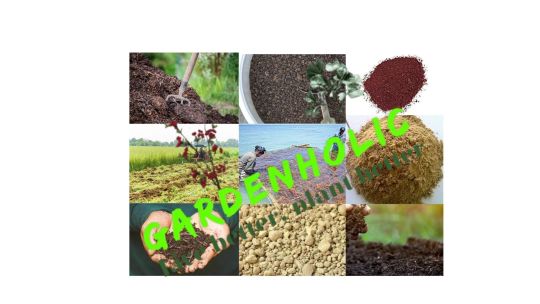
View On WordPress
#best organic npk fertilizer#conclusion of blog post#Gardening tips#how do chemical pesticides affect plants#How do you make natural NPK fertilizer at home?#how to apply natural pesticide#how to use organic pesticides around children and pets#natural fertilizers#natural pesticide#npk liquid fertilizer iffco#organic fertilizers#organic gardening#organic npk 19:19:19#organic npk fertilizer 50 kg price#organic npk fertilizer at home#organic npk fertilizer india#Organic npk fertilizer price#Organic npk fertilizer uses#resources for gardeners#What is NPK organic fertilizer?#Which is the best organic NPK fertilizer?#Which is the best organic NPK fertilizer? How do you make natural NPK fertilizer at home? Which organic fertilizer has the highest NPK? What#Which organic fertilizer has the highest NPK?
0 notes
Text
Black Salt Spell for the Garden
Most of my free time is spent in the garden. Rain or shine, that's most likely where you'll find me. I also work with a deity of nature and plants. So it makes sense that most of my magic is garden related.
This is an idea that came to me while researching different organic powdered fertilizers. I started mixing different ingredients together based on what my plants needed and it was hard to not think of making black salt.
The two most common components of black salt are salt and charcoal. While we all know salt and plants don't mix, charcoal has been used in farming for at least 2,500 years in the form of Terra Preta aka, biochar. The salt can be replaced with epsom salt -which has magnesium, a valuable element for plant health- and you have a garden safe and beneficial soil amendment for your plants!
For the most basic approach to this recipe I recommend one part crushed biochar to 3-4 parts epsom salt.
But we can make this more special with the addition of more ingredients. Some examples:
Coffee Grounds after you brew your coffee you can dry out the used grounds and add them to the black salt base. Coffee is a great source of nitrogen and, contrary to popular belief, the used grounds won't add acidity to your soil. Some sources used coffee grounds for focus, luck, grounding no pun intended, or for speeding up a spell.
Tea Leaves similar to coffee, used tea leaves are a good nitrogen source and the microbes and worms in the soil will appreciate the already broken down bio matter. When tea is brewed with a specific intention that intention is passed into the tea leaves as well making them an excellent spell ingredient.
Wood Ashes incense ash is a popular addition to black salt, sometimes replacing charcoal altogether. Incense ash can be added to garden safe black salt, though I can't speak to its mundane benefits. Wood ash has an NPK ratio of 0-1-3 making it high in potassium as well as many micronutrients that can feed your soil. Saving the ashes form ritual fires can imbue the salt with that same energy. Wood ash will make your soil more alkaline so keep it away from acid loving plants like blueberries!
Egg Shells are full of calcium which is necessary for the structure of cell walls in plants. Save your egg shells after cooking and let them dry out before crushing them into as fine a powder as you can, then add them to the salt. The calcium won't be available to your plants for about one year as the shells break down s l o w l y but I like to use this to my advantage in spell work. Egg shells can be used for protection and fertility so that can be a year long protection or fertility spell.
Store bought Powdered fertilizers there are a plethora of powdered fertilizers/ amendments available at garden centers that can be added for their magical associations or just their mundane uses. I like to add Azomite to all my garden beds, its full of minerals that help out microorganisms in the soil, but I also recommend blood meal, bone meal, or ground oyster shell, depending on what your garden needs. I like the brand Down to Earth because you can buy single ingredient boxes or well balanced mixed fertilizers.
Basically, anything that would break down in a compost pile and can be dried can be added to this garden safe black salt. Trust your intuition and listen to your garden, If you pay attention it'll tell you what it needs.
3 notes
·
View notes
Text
1. For accurate quantification, distribution and management, avoid uneven distribution of nutrients.
2. Prevent dust from flying and adhering to the wall of the device. Dust flying, dust adhesion is serious. After granulation, environmental pollution and loss of raw materials can be prevented.
3. Prevent segregation of fertilizer components. When the particle size and density of each component in the formulation are different, segregation is prone to occur. Granulation can effectively prevent the segregation of fertilizer particles.
4. Prevent agglomeration in the production process of certain solids, such as the production of granular phosphamide, urea, etc. Generally, the particle size is larger than that of the powder, and the specific surface area of the material after granulation is greatly reduced.
5. Adjust bulk density, increase or prolong the storage time of fertilizer.
6. Easy to use, carry and transport, increase the value of commodities, etc.
Zhengzhou Huazhiqiang organic fertilizer equipment manufacturer is based on the principle of honest management, aggressive and pioneering, including organic fertilizer production line, npk production line, etc., perfect after-sales service and supporting facilities. It is a main organic fertilizer granulator (roller granulator, disc granulator machine, etc.), organic fertilizer turning and throwing machine, organic fertilizer pulverizer, organic fertilizer fermentation machine and other organic fertilizer equipment manufacturers for a complete set of organic fertilizer production lines. The technology development system has won unanimous praise from users.
2 notes
·
View notes
Text

Daughter: Mom, I've been learning about fertilizers in my science class, and I find it fascinating how they can enhance crop growth. Could you tell me more about them?
Mother: Of course, dear. Fertilizers are indeed essential for agriculture. They're substances containing essential nutrients that plants need for healthy growth and development.
Daughter: What are the main nutrients in fertilizers, and why are they important?
Mother: Well, fertilizers typically contain three primary nutrients: nitrogen (N), phosphorus (P), and potassium (K), often referred to as NPK. Nitrogen is crucial for leaf and stem growth, phosphorus aids in root development and flowering, while potassium supports overall plant health and disease resistance.
Daughter: How do farmers know which fertilizers to use for their crops?
Mother: Farmers determine the type and amount of fertilizer needed based on soil tests and the specific nutrient requirements of the crops they're growing. For instance, if soil tests reveal a deficiency in nitrogen, they may opt for a nitrogen-rich fertilizer like ammonium nitrate or urea.
Daughter: Are there different types of fertilizers?
Mother: Yes, there are various types of fertilizers classified based on their nutrient content and release mechanism. For example, there are organic fertilizers derived from natural sources like compost, manure, or bone meal, which release nutrients slowly over time. On the other hand, there are synthetic fertilizers, which are manufactured chemically and often release nutrients more rapidly.
Daughter: Could you give me some examples of each type?
Mother: Certainly. Organic fertilizers include compost, fish emulsion, and seaweed extracts. These are beneficial for improving soil structure and fertility over the long term. Synthetic fertilizers, on the other hand, include ammonium sulfate, superphosphate, and potassium chloride. These are typically more concentrated and provide a quick nutrient boost to plants.
Daughter: Are there any drawbacks to using fertilizers?
Mother: While fertilizers can significantly enhance crop yields, improper use or overuse can lead to environmental problems like nutrient runoff, soil degradation, and water pollution. That's why it's crucial for farmers to apply fertilizers judiciously, following recommended guidelines and considering factors like soil type, crop type, and weather conditions.
Daughter: I see. So, fertilizers play a vital role in agriculture, but their responsible use is essential to minimize negative impacts on the environment.
Mother: Exactly, dear. Finding the right balance between agricultural productivity and environmental sustainability is key to ensuring a healthy and prosperous future for generations to come. http://dlvr.it/T6mcYr
0 notes
Text
Understanding the Essentials: NPK Fertilizer
In the world of agriculture and gardening, the term NPK fertilizer is frequently mentioned, often accompanied by numbers representing different ratios. But what exactly is NPK fertilizer, and why is it crucial for plant growth? Let's delve into the basics and explore why this trio of nutrients is essential for cultivating healthy, thriving plants.
NPK stands for nitrogen (N), phosphorus (P), and potassium (K), which are three vital elements necessary for plant growth. Each of these nutrients plays a unique role in various aspects of a plant's development:

Nitrogen (N): Nitrogen is crucial for the formation of amino acids, proteins, and chlorophyll, all of which are essential for plant growth and photosynthesis. It promotes lush, green foliage and overall plant vigor. Nitrogen deficiency often results in stunted growth, yellowing leaves, and poor fruit or flower production.
Phosphorus (P): Phosphorus is involved in several key processes within plants, including root development, flowering, and fruiting. It aids in energy transfer and the formation of DNA and RNA. Phosphorus deficiency can lead to weak root systems, delayed maturity, and poor seed or fruit production.
Potassium (K): Potassium helps regulate various physiological processes in plants, such as water uptake, photosynthesis, and enzyme activation. It contributes to disease resistance, stress tolerance, and overall plant health. Potassium deficiency may manifest as weak stems, leaf scorching, and susceptibility to pests and diseases.
The numbers displayed on NPK fertilizer labels represent the percentage of each nutrient in the product, in the order of nitrogen-phosphorus-potassium. For example, a fertilizer labeled as 10-10-10 contains 10% nitrogen, 10% phosphorus, and 10% potassium by weight.
Choosing the right NPK ratio depends on the specific needs of the plants being grown and the stage of growth. For instance, a high-nitrogen fertilizer (such as 20-10-10) is suitable for promoting vegetative growth in leafy greens and grasses. In contrast, a balanced fertilizer (like 10-10-10) is suitable for general-purpose use on a variety of plants. Fertilizers with higher phosphorus (e.g., 5-10-5) are ideal for encouraging flowering and fruiting in plants.
However, it's essential to use NPK fertilizers judiciously, as excessive application can lead to nutrient imbalances, environmental pollution, and harm to beneficial soil organisms. Soil testing can help determine nutrient deficiencies and guide fertilizer application rates.
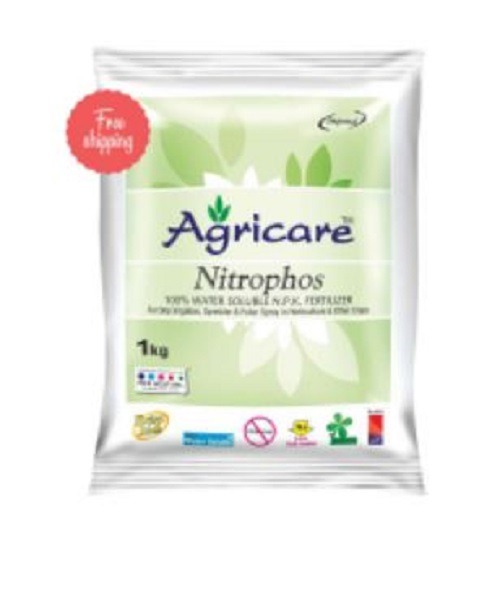
In summary, NPK fertilizer is a cornerstone of plant nutrition, providing essential nutrients needed for healthy growth and development. Understanding the roles of nitrogen, phosphorus, and potassium and their respective ratios empowers gardeners and farmers to make informed decisions, resulting in vibrant, productive plants and bountiful harvests.
0 notes
Text
NPK Fertilizer: Cultivating Success in Gardening

Introduction
Gardening enthusiasts, rejoice! In this article, I'll delve into the fascinating realm of NPK fertilizer. Let's start by understanding what NPK stands for and why it's a game-changer in plant cultivation.
Understanding the Components
Nitrogen (N):
The backbone of lush foliage, nitrogen is crucial for leaf development. My experiences have shown that a balanced NPK ratio with ample nitrogen leads to vibrant and healthy plants.
Phosphorus (P):
For robust root systems and efficient energy transfer, phosphorus is key. I've witnessed the transformative effects of phosphorus-rich fertilizers on the overall plant structure.
Potassium (K):
Often overlooked, potassium is essential for flowering and fruiting. Through trials and errors, I've found that a potassium-rich blend enhances the reproductive phase of plants.
Choosing the Right NPK Ratio
Tailoring the NPK ratio to your specific plants is an art. Understanding the unique needs of different crops ensures optimal growth and yield. Dive into the world of customized fertilization for a flourishing garden.
Application Techniques
Mastering the art of applying NPK fertilizer is a gardener's secret weapon. Whether through soil application or foliar feeding, each method has its perks. Learn the dos and don'ts to maximize nutrient absorption.
Benefits of NPK Fertilizer
The rewards of using NPK fertilizer are bountiful. From accelerated plant growth to increased yields, this fertilizer is a must-have for any gardener looking to elevate their harvest.
Common Mistakes in NPK Fertilization
Navigating the fine line between over-fertilization and under-fertilization is crucial. I'll share the pitfalls to avoid, ensuring your plants receive the right amount of nutrients.
Environmental Impact
Gardening isn't just about the plants; it's about sustainability too. Explore eco-friendly fertilization practices that minimize environmental impact and runoff.
Personal Experience with NPK Fertilizer
Embark on a journey through my own gardening experiences with NPK fertilizer. Discover success stories and challenges faced, offering a personal touch to your gardening endeavors.
Expert Tips for NPK Application
Unlock the secrets of successful NPK application with expert tips. Consider seasonal variations and closely monitor plant responses for optimal results.
Addressing Concerns about NPK Fertilizer
Safety and environmental concerns are valid. I'll guide you through safety measures and introduce organic alternatives, ensuring responsible gardening practices.
Conclusion
In the world of gardening, NPK fertilizer is a reliable ally. Through my journey, I've witnessed its transformative effects. Now equipped with knowledge, you're ready to cultivate success in your garden. Happy gardening!
1 note
·
View note
Text
Organic Manure fertilizer – Fertilizer with no harmful effect
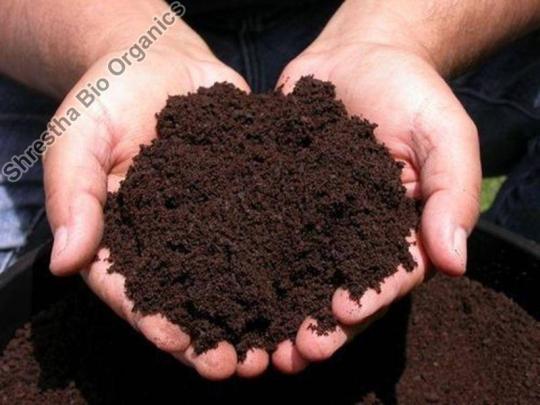
Organic manure is a kind of Organic Fertilizer. It is derived by composting organic waste by using several kinds of organic waste. It is a mixture of decomposing vegetable or food waste, bedding materials, and most importantly worm castings. This process of producing Organic manure is completely non toxic to the environment.
Organic manure fertilizer supplied by the organic manure suppliers in Karnataka is one of the premium fertilizers & soil conditioners that can be utilized for potted plants. Several combinations of seamless potting mixtures can be made by using this manure, depending on the kind of plant used. Nutrients in Organic manure are progressively & progressively made obtainable to plants which is an ideal situation for potting media.
Properties of Organic manure
Good quality Organic manure is dependable, moist, dark black medium and has a pleasing earthy smell. It includes water-soluble nutrients and is an exceptional, nutrient-rich organic fertilizer and soil conditioner. A well-balanced manure fertilizer contains NPK, Sulphur, Calcium, magnesium and iron. It also includes micronutrients like manganese, Zinc, Copper, Boron and molybdenum. Nutrient-wise, this fertilizer is superior to cow-dung manure.
How to use Organic manure
In Pots - Rather, Organic manure is added to the soil mixture throughout the potting of a new plant. One part Garden soil, one part coco-peat & one part Vermicompost (1:1:1), all three are systematically mixed and added to the pot. This mixture is often stated to be a worldwide potting mixture.
For houseplants
Organic manure is impeccable for most ornamental, foliage or indoor flowering plants. It keeps the color, size & shape and overall entrance of foliage & branches of houseplants by providing a firm source of nutrients.
Vegetables
Organic manure has reformed vegetable farming & kitchen gardening. Organic farming has exposed the finest results among all the other fertilizers. All variabilities of fruiting, underground and leafy vegetables can be grown by using Organic manure as the main fertilizer, whether grown in containers or on raised beds.
For agriculture
This Organic manure is mentioned as a friend of the farmer. These make the soil spongy and fertile through their routine events. It is acclaimed that Organic manure fertilizer is allowed to be formed naturally in agricultural lands without the obligation of any external input. Ready-to-use Organic manure is more valuable in small-scale organic farming, kitchen gardening, container gardening & indoor gardening than in agriculture
What is the recommended dose of Organic manure?
Apart from being part of the potting mixture, most potted plants should be given an extra dose of Organic manure throughout their various development stages. A handful of Organic manure fertilizer can be added to a pot every 2-3 months. When it is superficially assorted with the upper surface of the soil, it is known as Top Dressing. It then certifies the healthy and firm growth of plants.
Where to buy good quality Organic manure ?
Make sure that the Organic manure you buy is from a dependable source, & is free from any types of impurities and unsafe pathogens. You can buy premium quality organic fertilizer online in India from various sellers available. Organic manure is one of the most popular organic fertilizers used by Indian gardening lovers.
0 notes
Text
Choosing the Best Fertilizer: Different Types for Different Needs
Organic farming is an ever-increasing industry due to the rising consumer demand for organic products. However, the greatest misconception about organic agriculture is it gives delayed results often affecting crop yield and production. Another reason to avoid organic farming is the cost incurred and application complexity of the organic fertilizers. Less is known about the changes surrounding the organic fertilizers industry and the correct methods to use their offerings to derive the utmost benefits. Organic fertilizers are no longer restricted to manure and compost, rather they are available in different categories and compositions to boost plant growth. Also, you can now conveniently order organic crop protection products online to address your customized plant growth issues.
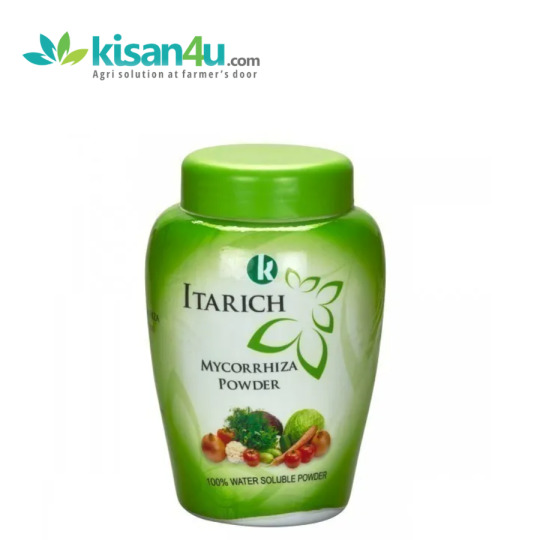
Determining nutrient needs
The vital and most underestimated fact in the agriculture industry is the determination of the needs of the plants and the soil. Aggressive marketing campaigns run by fertilizer manufacturers fail to highlight the fact that not all fertilizers are made to suit the customized needs of a particular field. Thus, identifying what your plant and soil needs is essential to yield. Simple fertilizer tests, tests of plant tissues, and analysis of the soil can aid the ideal selection of fertilizers to elevate harvest quantity and quality.
You can get glimpses of the issues faced by your plants to better address them. Chlorosis indicated by the yellow or pale green color of plants indicates the lack of Sulphur and nitrogen. Similarly, iron deficiency can be identified by the white or pale yellow tissues of the plants. Further, you can seek the help of soil testing laboratories to diagnose the extent of mineral deficiency. These activities would assist in the accurate selection of fertilizers the next time you browse for garden care organic fertilizer online.
Types of Organic Fertilizers
Mineral Fertilizers
These include fertilizers that provide nutrients like nitrogen, phosphorus, and potassium. This is the NPK on most fertilizer packaging. Although NPK fertilizers are most commonly used and are easily available, fertilizers to fight calcium, magnesium, and sulfur deficiencies are also available in the market.
Micronutrient fertilizers
A wide range of fertilizers containing essential micronutrients including iron, manganese, molybdenum, nickel, boron, zinc, and copper are also widely retailed currently.
Single Nutrient Fertilizers
Soil and plant testing assist in the determination of specific needs of your fields which can be addressed by the use of single nutrient fertilizers. They are more effective than multi-nutrient fertilizers in well-researched cases as they help to avoid overfeeding and thus burning the crops.
Buy the right organic fertilizers
Fertilizers are available in a variety of chemical compositions and formulations. What should be considered while buying fertilizers is their chemical composition. Where organic fertilizers provide sustainable and long-term results, synthetic fertilizers can ruin soil health over time affecting crop yield. Synthetic fertilizers also cause pollution. To further simplify the application of your organic fertilizers you can consider plant food fertilizer tablets online in addition to powder and spray fertilizers. Order your next online organic fertilizers at an amazing user-friendly platform offered by kisan4u. They provide fertilizers by some of the best organic fertilizer brands including katra, Virus- G, Miticide, and Classic.
#best organic fertilizers#best bio growth organic farming fertilizer#buy organic fertilizer online in India
0 notes
Text
NPK Fertilizer: The Only Igniter Your Plant Needs
When it comes to nurturing plants and ensuring healthy growth, fertilizers play a crucial role. Among the various types of fertilizers available, NPK fertilizers have gained influential popularity due to their ability to boost plant growth.
Before knowing Why let’s first figure out what is NPK Fertilizer-
NPK Fertilizer stands for Nitrogen (N), Phosphorus (P), and Potassium (K) – three essential macronutrients that play a vital role in plant development. It is categorized under chemical fertilizer. Nitrogen facilitates leaf and stem growth, phosphorus aids in root development and flower formation, and potassium helps strengthen the overall plant structure. By providing a balanced combination of these nutrients, NPK fertilizers act as a catalyst for promoting healthy growth and increased productivity.
One of the key advantages of NPK fertilizers is their ability to be formulated for specific plant requirements. Whether you're growing vegetables, flowers, or fruits, NPK fertilizers can be customized to provide the right balance of nutrients, ensuring that your plants receive the nourishment they need at each stage of their growth cycle. This targeted approach enables plants to reach their full potential, resulting in vibrant foliage, robust root systems, and bountiful harvests.
As NPK is a Chemical Fertilizers known for its versatility in addressing nutrient deficiencies in plants. Through soil testing and analysis, specific nutrient imbalances can be identified, and targeted nutrients can be applied to rectify these deficiencies. By providing the missing nutrients in the required proportions, NPK fertilizers can rectify deficiencies quickly, restoring plant health and promoting vigorous growth.
Let's look over best practices for NPK Fertilizer application to maximize the benefits of NPK fertilizers and ensure their responsible use, it is essential to follow these best practices:
Conduct soil testing to determine nutrient deficiencies and select the appropriate NPK fertilizer ratio.
Apply NPK fertilizers in the recommended quantities, considering crop type, growth stage, and soil conditions.
Employ precision farming techniques to minimize fertilizer wastage and optimize nutrient uptake by plants.
Combine NPK fertilizers with organic amendments to improve soil health and promote sustainable agriculture.
NPK fertilizers have revolutionized the way we cultivate plants, enabling us to maximize yields and promote healthy growth. Through their tailored nutrient compositions, these fertilizers provide plants with the vital elements needed to thrive, ultimately leading to vibrant foliage, robust root systems, and abundant harvests. As with any gardening practice, it is essential to use fertilizers judiciously, following recommended guidelines, to strike the perfect balance and ensure sustainable and eco-friendly cultivation practices.
Originally Published In: https://bit.ly/3JEpKib
0 notes
Text
What is Rooftop gardening?
Rooftop gardening is a man-made green space / vegetative layer grown created in industrial, residential and commercial spaces using Garden grow-bags, Wooden planters, Terracotta pots and Plastic planters
Rooftop gardening operations include waterproofing inspections, drainage inspections, removal of litter, plant health inspections, replacement planting, irrigation, pruning, mowing and grass cutting, fertilizing, diseases and pest control and weeding.
First and foremost thing to grow organic vegetables in the Rooftop gardens is to avoid spraying chemicals and pesticides into it.
You can use garden grow bags of size 12′ x 12′ they are lighter and are not expensive. You can also use Wooden planters remain moist and cool. Terracotta pots are heavy and offer more beautiful patterns. Plastic planter are light in weight, colorful and low-cost. Clay planters are fragile but more natural
The structure and weight of a rooftop garden can cause problems for the overall building. Hence the soil composition for the terrace gardening should be 30% Cocopeat, 30% garden soil, 20% river sand and 20% cow dung manure. This will reduce the weight of the soil used for Rooftop gardening. Also the usage of Cocopeat will retain the moisture content in the soil for longer duration.
When you are directly placing the pots / containers in the rooftop, don’t forget to waterproof the surface of the rooftop / building terrace. It will protect from water seepage onto the building.
Irrigation should be done at least one in a day so that the plant are healthy. You can also use drip irrigation for the Rooftop gardens. However avoid watering the plants in rainy season as excessive watering can damage the roots of the plants
If there is excessive sun, you can go for sun shade so that some percentage of the sunlight can be reduced and drought can be avoided. Green roofs provide shade, remove heat from the air, and also reduce temperatures of roof surface and surrounding air
One of the disadvantage of rooftop garden is the after excessive rain soil gets saturated and nutrients will not be available for the plants. Hence fertilize the plants immediately after rainy season with proper NPK fertilizer so that the plants will produce good yield.
Gardening requires simple tools and arranges all these for your requirements. You may need sprayers, composters, shovels, rakes, and gloves to name a few.
Benefits of rooftop gardening is growing your own food and reusing all waste in your home in an organic way and protect our building from absorbing heat
youtube
0 notes
Text
What is Rooftop gardening?
Rooftop gardening is a man-made green space / vegetative layer grown created in industrial, residential and commercial spaces using Garden grow-bags, Wooden planters, Terracotta pots and Plastic planters
Rooftop gardening operations include waterproofing inspections, drainage inspections, removal of litter, plant health inspections, replacement planting, irrigation, pruning, mowing and grass cutting, fertilizing, diseases and pest control and weeding.
First and foremost thing to grow organic vegetables in the Rooftop gardens is to avoid spraying chemicals and pesticides into it.
You can use garden grow bags of size 12′ x 12′ they are lighter and are not expensive. You can also use Wooden planters remain moist and cool. Terracotta pots are heavy and offer more beautiful patterns. Plastic planter are light in weight, colorful and low-cost. Clay planters are fragile but more natural
The structure and weight of a rooftop garden can cause problems for the overall building. Hence the soil composition for the terrace gardening should be 30% Cocopeat, 30% garden soil, 20% river sand and 20% cow dung manure. This will reduce the weight of the soil used for Rooftop gardening. Also the usage of Cocopeat will retain the moisture content in the soil for longer duration.
When you are directly placing the pots / containers in the rooftop, don’t forget to waterproof the surface of the rooftop / building terrace. It will protect from water seepage onto the building.
Irrigation should be done at least one in a day so that the plant are healthy. You can also use drip irrigation for the Rooftop gardens. However avoid watering the plants in rainy season as excessive watering can damage the roots of the plants
If there is excessive sun, you can go for sun shade so that some percentage of the sunlight can be reduced and drought can be avoided. Green roofs provide shade, remove heat from the air, and also reduce temperatures of roof surface and surrounding air
One of the disadvantage of rooftop garden is the after excessive rain soil gets saturated and nutrients will not be available for the plants. Hence fertilize the plants immediately after rainy season with proper NPK fertilizer so that the plants will produce good yield.
Gardening requires simple tools and arranges all these for your requirements. You may need sprayers, composters, shovels, rakes, and gloves to name a few.
Benefits of rooftop gardening is growing your own food and reusing all waste in your home in an organic way and protect our building from absorbing heat
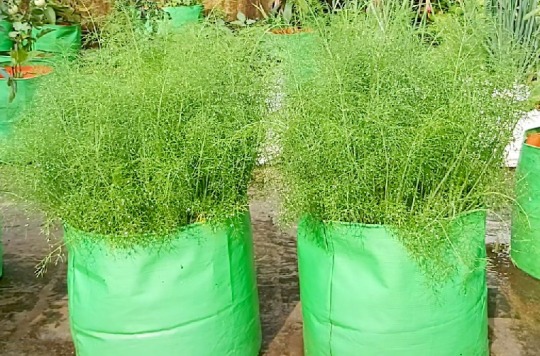
0 notes
Text
Organic Fertilizer
Organic Fertilizer
We believe that every gardener deserves access to the best organic fertilizers possible to support their vegetable garden.
That's why we work to connect small farms across the United States that specialize in producing high-quality, environmentally-friendly fertilizers with gardeners who are passionate about growing healthy, delicious vegetables.
Compost
Manure
Liquid Fertilizer
Organic Fertilizer FAQ
Why Choose Organic Fertilizer Over Synthetic?
Organic fertilizer is made from natural materials that improve the quality of your soil, such as manure, compost, and leaves. Synthetic fertilizer is made from chemicals that can harm your soil, plants, and animals. Here are four reasons to choose organic fertilizer over synthetic:
1. Organic fertilizer improves the quality of your soil. Over time, synthetic fertilizers can break down the structure of your soil, making it harder for roots to penetrate. This can lead to water runoff and soil erosion.
2. Organic fertilizer is safer for your plants. Chemicals in synthetic fertilizers can burn your plants’ roots, especially if you use too much or apply them during hot weather.
3. Organic fertilizer is safer for wildlife. Animals can be harmed by eating plants that have been treated with synthetic fertilizers.
What Is NPK?
NPK stands for nitrogen, phosphorus, and potassium, which are the three essential nutrients that all plants need to thrive. NPK fertilizer is a type of fertilizer that contains these three nutrients in varying proportions, depending on the specific formulation.
Nitrogen is responsible for promoting leaf growth, phosphorus helps with root development and flowering, and potassium aids in overall plant health and vigor.
By using NPK fertilizer, gardeners can ensure that their plants are getting the right balance of nutrients to grow healthy and strong.
What Fertilizers Do For Plants?
Fertilizers are important for plant growth and development. They provide essential nutrients that plants need to survive and thrive. Fertilizers can be organic or inorganic, and each has its own benefits and drawbacks.
Organic fertilizers are made from natural materials like compost or manure. They release nutrients slowly, so they need to be applied more often than inorganic fertilizers. However, organic fertilizers improve soil health and help build up beneficial microbes that support plant growth.
Inorganic fertilizers are made from synthetic materials like nitrogen, phosphorus, and potassium. They release nutrients quickly, so they don’t need to be applied as often as organic fertilizers. However, inorganic fertilizers can damage soil health and harm beneficial microbes if they’re not used carefully.
Are Higher NPK Amounts Better?
When it comes to fertilizers, the three key nutrients are nitrogen (N), phosphorus (P) and potassium (K). These are typically represented by the NPK value on the fertilizer package. For example, a 10-10-10 fertilizer has an NPK value of 10-10-10 and contains 10% nitrogen, 10% phosphorus and 10% potassium.
So, are higher NPK amounts better? It depends.
If your soil is already high in one or more of these nutrients, adding more of that nutrient isn’t going to help your plants. In fact, it could actually do more harm than good.
For example, if your soil is high in phosphorus and you add a fertilizer with a high phosphorus content, you could end up with an imbalance that could hurt your plants.
How Do I Know If My Plants Need Fertilizer?
Organic fertilizer is made from natural materials and helps to improve the quality of your soil while providing essential nutrients for your plants.
You may need to add organic fertilizer to your garden if you notice that your plants are not growing as well as they should, or if the leaves are yellowing or falling off.
If you are unsure whether your plants need fertilizer, it is best to consult with a gardening expert. They will be able to help you determine which type of fertilizer is best for your garden, and how often you should apply it.
How Long Does Fertilizer Last In Soil?
Organic fertilizer is a great way to add nutrients to your soil, but you may be wondering how long it will last. Here is a general guide to the shelf life of organic fertilizer:
Composted manure – 1 to 2 years
Uncomposted manure – 6 months to 1 year
Poultry manure – 6 months
Cottonseed meal – 2 to 3 years
Alfalfa meal – 2 to 3 years
Bone meal – 1 to 2 years
Seaweed/kelp meal – 1 year
As you can see, there is a wide range of shelf life for different types of organic fertilizer. In general, composted manure and cottonseed meal will last the longest in your soil, while un composted manure and poultry manure will break down more quickly. Bone meal and alfalfa meal are somewhere in the middle.
How Often Should You Fertilize Flowers?
If you want your flowers to stay healthy and vibrant, you should fertilize them regularly. But how often should you fertilize them?
It depends on the type of fertilizer you’re using. If you’re using an organic fertilizer, you should fertilize your flowers every two weeks. If you’re using a chemical fertilizer, you can fertilize them every week.
Either way, it’s important not to over-fertilize your flowers. too much fertilizer can burn their roots and damage their leaves. So, be sure to follow the directions on your fertilizer label carefully.
How Often Should You Fertilize vegetables?
It is generally recommended to fertilize vegetables once a week. However, some vegetables may need to be fertilized more or less frequently depending on the type of vegetable and the specific growing conditions.
For example, leafy greens may need to be fertilized more often than root vegetables. In general, it is best to err on the side of too little fertilizer rather than too much. Over-fertilizing can lead to nutrient burn, which can damage plants.
Click To Grow
Organic Seeds
Shop Fertilizer
Shop
Helps Us Grow - Share If You Like
Facebook
Twitter
LinkedIn
Pinterest
Reddit
WhatsApp
Read the full article
0 notes
Text
BENEFITS OF HAVING ORGANIC VEGETABLES AND THEIR IMPACT IN DAILY LIFE
INTRODUCTION
Food is one of the most important essential in our life for it brings energy to the body in order to keep it functioning. What we consume everyday determines the level of healthiness in our body. However, without food the body won’t be able to perform daily task and function well. Moreover, the human body requires a variety of nutrients like protein, carbohydrates, fat, vitamins and minerals. All of these nutrients can be found in the food we consume. This indicates that people should be cautious with the intake of food, because if they don’t people would most likely face consequences of health problems.
Nowadays, with the convenience of fast foods restaurants and different instant food available in stores, people are being lead to the wrong way of consumption. People are abandoning the thought of eating what is right and healthy due to the cost of maintaining a balanced diet. The number of people getting obese each year rapidly increases. It appears like people did not have any help or guide to eating healthy. Therefore, it is important to encourage people to eat healthy especially organic food, in order to decrease the rising rate of health problems.
Benefits of Homegrown Vegetables
While growing a garden seems to be a growing trend, that is not to say that it isn’t a completely worthwhile venture, something merely fashionable for the moment. Gardens are fun and interesting projects for adults and children to enjoy. They are productive ways to use our lawns, as opposed to the destructive habit of mowing, which relies on fossil fuels and causes serious pollution. It doesn’t take long, really, to come up with a host of reasons to start a garden.
Similarly, the benefits of homegrown vegetables span far beyond a fresh arugula salad or juicy tomato sandwich. When we look at what they do to the yard, as plants, they are amazingly beneficial to the earth and ecosystem. When we look at what they do to our diets, they make our meals healthier, our bodies nimbler, and our minds active. In other words, homegrown vegetables change our lifestyle and our environment for the better.
They are literally tastier.
It’s not uncommon for older generations to comment on how vegetables don’t taste like they used to. While the inclination is to discount these statements as another version of complaining about pop music or technology, there is something to it. Homegrown vegetables come from homegrown soil rather than hydroponics or unnatural growing mediums. The soil, the healthy mix of vitamins and minerals available in it, make homegrown tomatoes true-blue tastier. That’s how all vegetables used to be grown.
They are more nutrient-dense.
For the same reason, the mineral-rich soil, homegrown vegetables have more nutrients in them. Though NPK fertilizers help to produce bigger, prettier vegetables, those vegetables are actually just over feeding on what makes them large rather than what provides nutrients. It’s not unlike if humans were to eat a diet of mostly fast food: Just because we get really large from it doesn’t mean we are healthy. Eating a bunch of vegetables keeps us healthy, but it doesn’t usually make us bulky.
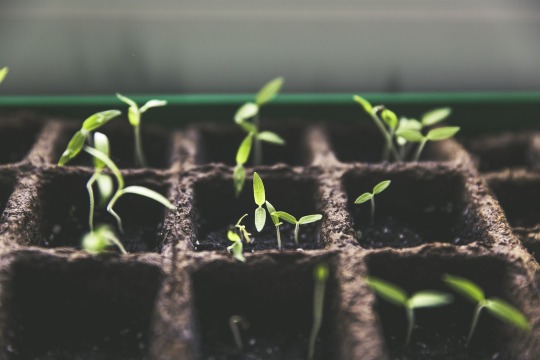
They are truly fresh.
The other element of the nutrient density is that freshness makes a huge difference. Even in the produce section of the supermarket, the freshness is questionable at best. Fruits and vegetables are shipped across the planet. They sit in boxes for who knows how long. They sit on shelves for who knows how long. All the while, the nutrient content is waning in that food. It’s much richer if eaten soon after being picked. We can homegrown veggies straight out of the garden.
They make healthy, plant-based meals.
One of the beauties of having tasty, healthy vegetables constantly coming out of the garden is that we tend to eat them. Rather than relying on processed foods, we are more likely to turn to the garden, which we have spent time growing, to provide our meals and treats. Eating more vegetables is never a bad thing.
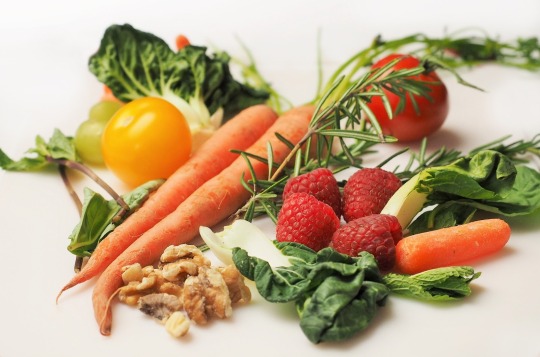
They don’t have dangerous toxins.
In today’s supermarket, it’s very difficult to avoid pesticides and other biocides that are used to grow our food. Additionally, food preservatives, even on fresh produce, can be problematic to our health. Grown in a garden at home, we can control the chemicals used and, hopefully, that means none. We don’t need fertilizers for fertility, and we don’t need pesticides to avoid pests. After all, we are going to eat this stuff.
They are inexpensive, organic food.
While organic foods are more and more available and affordable, they are definitely more expensive, and going organic cuts down significantly on what’s offered. Homegrown vegetables, though they cost in time, are inexpensive to produce and can (should) be done completely organically. We also can choose what we grow.
They aren’t as wasteful.
Another problem with supermarkets is that, particularly with produce sections, the whole system is very wasteful. There is a collection of packaging. There are all of those food miles and the petroleum that they require. There is all the produce and expired products that get tossed in the dumpster. Homegrown vegetables, even if they go bad, are simply fed into a compost bin to grow next year’s garden. There is no waste.

They are a built-in exercise program.
Tending a garden isn’t high-intensity exercise, but it does promote an active lifestyle. There’s bending, squatting, digging, walking, stretching, and lifting. Different gardeners approach their work differently, but a well-tended garden is much more productive. That means getting out in it daily for at least a few minutes. Plus, it’s wonderful to get some exercise with a greater purpose behind it.
They increase biodiversity.
Having a vegetable garden with a good mix of veggies growing makes for a biodiverse area. Biodiversity helps to keep the soil healthier. It helps pollinating animals like butterflies and bees find food. The mix of veggies is also good for the vegetables themselves, helping with controlling pests and diseases. Growing vegetables adds something valuable to the lawn.
To put succinctly, growing vegetables at home is far more than a trendy thing to do. It’s a boost to people, plants, and animals. There are so many benefits it brings to a home.
1 note
·
View note
Text
An adult pig can excrete 3-5 kg of feces per day, and 10,000 pigs can excrete 30-50 tons per day. Generally, 10,000 pig farms are suitable for organic fertilizer production line equipment with an annual output of 5,000-10,000 tons. Pig manure must undergo high-temperature composting and fermentation for harmless treatment.
Zhengzhou Huazhiqiang organic fertilizer equipment manufacturer is based on the principle of honest management, aggressive and pioneering, including organic fertilizer production line, npk production line, etc, perfect after-sales service and supporting facilities, is a company mainly engaged in organic fertilizer granulator, organic fertilizer Turning machine, organic fertilizer pulverizer, organic fertilizer fermentation machine and other organic fertilizer equipment manufacturers for a complete set of organic fertilizer production lines, and the technology development system has won unanimous praise from users.
1 note
·
View note
Text
What do you need to consider when buying organic fertilizer equipment?
First of all, let's first understand what equipment is included in the organic fertilizer production line. The complete set of organic fertilizer production line equipment includes: fermentation turning machine, crusher, feeder, horizontal mixer, organic fertilizer granulator, dryer, cooler, sieve Extension, weighing packaging machine. Common organic fertilizer granulators include: npk fertilizer granulator, transfer granulator, disc granulator machine, new organic fertilizer granulator, new two-in-one organic fertilizer granulator, flat die granulator machine, ring die granulator, each granulator has its own production characteristics, and the fertilizer granulator machine price varies. So what to consider when buying these devices, follow me to find out.
1. Look at the installation of organic fertilizer equipment:Whether the production material of the organic fertilizer production line equipment is a steel structure; whether each welded joint is uniform and smooth, and whether there are shoddy behaviors, such as missing welding, etc.; whether the welding is not good, and is there burn-through phenomenon? Are the bolts of each part tightened? Is there any missing bolt, small problem? Most easily overlooked, often with extreme costs! The best choice for the material roller transmission shaft is the universal coupling, because of its compact structure, flexible operation, and easier disassembly! There is something more! One last point: how well does an organic fertilizer perform? Due to the different number of equipment in the organic fertilizer production line, the particle size should be symmetrical and must be clear!2. Look at the safety equipment of organic fertilizer equipment:Safety issues must be considered when purchasing organic fertilizer equipment, and safety issues cannot be ignored! The organic fertilizer production line must be designed with a safety device. The line selection must meet the standards, the power of the whole machine must be fully and reasonably configured, and it is best to expand the capacity. In addition to the circuit safety issue, the use safety issue cannot be underestimated. It must be equipped with a professional instruction manual and be guided by a special person. Equipment operation safety should be equipped with protective devices and emergency stop switches.
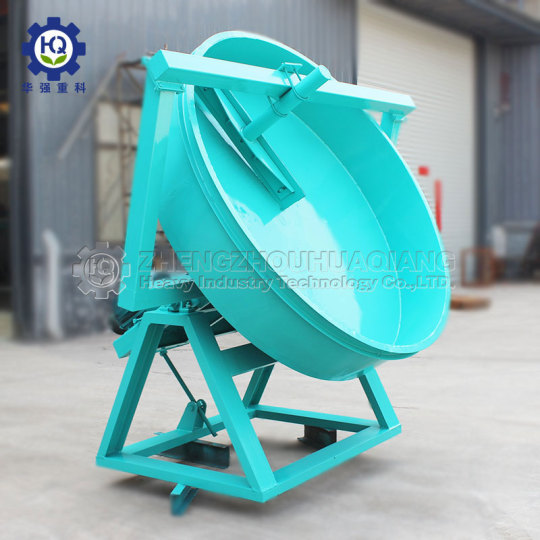
1 note
·
View note
Text
What adverse effects will harmful substances have on organic fertilizer equipment?

Now for the products processed by the organic fertilizer equipment we use, we can understand that there are many harmful substances that can easily produce a large amount of harmful substances during the processing of organic ingredients. In this case, what adverse effects will the harmful substances have on the organic fertilizer manufacturing equipment?
When we use it in normal environment, we follow the usage specification of the equipment, the pH value of most materials is between 5.3 and 8.3, the material is not corrosive, so most equipment will not be corroded. If people do not follow the usage specifications when using organic fertilizer equipment in daily life, and do not pay attention to the inspection and maintenance of the equipment before and after use, it will easily lead to failure and reduce the service life. Another point to note is that more and more residues may accumulate as we use the device for longer and longer. If solutions are not taken care of, the efficiency and effectiveness of processing materials will increase. To make matters worse, in order to prevent this, we need to put it in a ventilated and dry place in time.
In addition, we should also tell you that organic fertilizer equipment is usually the raw material of chicken manure and pig manure, adding a certain amount of compounds, and producing fertilizer equipment by mixing alcohol. We can choose cost-effective organic fertilizer equipment from several situations. 1. Consider price and quality. The price of organic fertilizer equipment for large and medium-sized machinery is very high, so quality takes precedence over price. Compare the goods with those of the three manufacturers to see which organic fertilizer machine manufacturers has better product quality and higher cost performance.
Zhengzhou Huazhiqiang organic fertilizer equipment manufacturer, including organic fertilizer production line, npk production line, etc, complete after-sales service and supporting facilities, is a main organic fertilizer granulator (rotary drum granulator, counter-roll granulator, disc granulator, etc.), welcome to consult.
1 note
·
View note